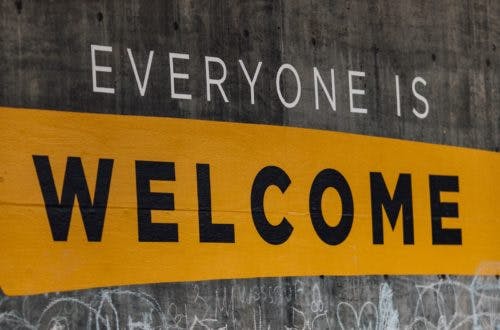What Is Peer Support? How Can It Reprogram Your Mental Health?

Peer support, or peer-to-peer support has been around for years in the form of in-person support groups. But what’s it look like in its digital form? Turns out, a whole lot better.
Even before the pandemic struck, we were beginning to recognize how rampant loneliness was hurting most of us. Despite the urgent imperative, we haven’t historically had access to healthy tools for social connection.
As Dr. Rosemary Ku, physician with dual board certifications in Internal Medicine and Preventative Medicine, puts it: “Loneliness, anxiety, depression, stress, and other emotional struggles have been closely linked with physical health impacts. But in this era of constant struggle and deaths of despair, we have few tools ready to take on the sheer volume of pain in America today.”
We’ve all heard about the impact of predatory social tools. But what about social tools for good? How could we build something like that?
That’s where online peer support comes in.
Why is peer support a positive, wholesome online interaction?
Reputable peer support providers, especially online, will make strong commitments to your privacy. Sites like Supportiv don’t ask for identifying info, nor sell ad space (no creepy targeting). And they are modeled on your wellbeing, rather than on your personal information.
Dr. Rosemary Ku, who holds an MD and MBA from Columbia, and an MPH from UC Berkeley, explains why peer support is a possible solution to our escalating mental and physical health crises:
“The healthcare system is not equipped to address the challenges of daily life struggles. Peer support has been identified as an effective intervention to fill this gap, instill greater emotional well-being, and improve health outcomes for a wide range of mental and physical health issues.”
Can peer support help?
Peer support’s anonymity, 24/7 availability, lack of judgement, and ability to reduce loneliness make chatting a quick and easy choice in the moment. It provides supportive, social relief without the risk, and without the effort.
If you need more convincing, there’s a pretty cool insight cited in a recent Supportiv whitepaper. In at least one meta-analysis of randomized controlled trials, peer-to-peer support’s efficacy matched that of group CBT: “The magnitude of improvement seen from peer support was similar to those of psychotherapy and antidepressant medications.”
It’s more comfortable to hear suggestions and feedback from your peers, than to be instructed by a professional who makes you feel judged. Additionally, it feels better to talk to someone who has personally been where you are now; they’re the only folks who can truly appreciate your struggle.
How does it help?
“By increasing social connectedness and providing both emotional and tactical support for day-to-day stressors, peer support is a low-cost, effective service that can serve as a standalone offering or complementary to disease management programs.”
This type of tool connects people even when connection isn’t safe — physically or emotionally. It gives you an outlet when all your usual outlets are off-limits. Folks who understand your struggle know how to respect where you are. Even though they can’t know WHO you are!
Anonymous online peer support facilitates vulnerable connection, without the risk. And with all the possible benefits, it’s worth giving a try.
En savoir plus sur
Contactez-nous
Pour un soutien anonyme entre pairs, essayez le chat;.
Pour les organisations, utilisez ce formulaire ou envoyez-nous un e-mail à info@supportiv.com. Notre équipe se fera un plaisir de vous aider !
